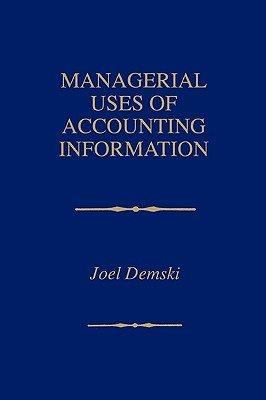randomized monitoring This is a eontinuation of problem 8 in Chapter 18. Everything remains as before, except
Question:
randomized monitoring This is a eontinuation of problem 8 in Chapter 18. Everything remains as before, except Ralph now has an infonnation source. For a cost of 4,000 the source will report, without error, whether the manager supplied input H or input L. If input H is reported, the manager will be paid I = 15,000. If input L is reported, the managerwill be fired, with a payment of 1= O. (No negative payments are allowed.)
This is certainly effective but far too costly.
a] Suppose Ralph can commit to buying the infonnation only when output Xl is observed. Ralph will then pay (i) I = 0 whenever the infonnation is purchased and reveals the input is L and (ii) 15,000 otherwise. Will this motivate supply of input H? Will the manager have any compensation at risk, in equilibrium? Is this a good idea?
b] Now suppose Ralph can commit to buying the infonnation only when output Xl is observed and only then with probability fi. (Think of this as random monitoring.)
Again, Ralph will pay (i) I = 0 whenever the information is purchased and reveals the input is L and (ii) I = 15,000 otherwise. Find the lowest B that will motivate supply of input H. Is this a good idea?
c] Finally, consider a mare elaborate plan. Set 6 = .20738. Pay I = 0 if the informatian is purchased and input L is reported. Pay I = 15,130.97 if Xl is observed, the informatian is purchased and reports input H; pay I = 13,909.36 if output Xl is observed and the information is not purchased; and pay I = 15,098.98 if output x2 is observed. Is this a better idea? What is the explanation? (Hint: what has happened to the expected information cost and to the manager' s risk premium?)
d] Finally, do you perceive any incentive problems on the part of Ralph?AppendixLO1
Step by Step Answer:






